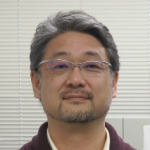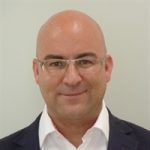BIOTEC
International
Advisory Board
INTERNATIONAL ADVISORY BOARD

Jean-Marcel Ribaut | CHAIRMAN
Director, Integrated Breeding Platform (IBP)
Jean-Marcel Ribaut is the Director of Integrated Breeding Platform (IBP), is a development being led by the Generation Challenge Programme (GCP), a part of the Consultative Group on International Agricultural Research (CGIAR). The IBP is conceived to help plant breeders accelerate the creation and delivery of new crop varieties in the context of an increasing global demand for food. It does so by giving access to vanguard technology and quality services – for both traditional and modern breeding activities.
Trained in plant physiology and genetics at Lausanne University in Switzerland, Dr. Ribaut joined the International Maize and Wheat Improvement Center (CIMMYT) in 1993 as a post-doc in the Biotechnology Program. In 2001, he was appointed Deputy Director of the Applied Biotechnology Program, and in 2004 became the Group Leader for Biotechnology at CIMMYT. During his time at CIMMYT, Dr. Ribaut’s research activities focused on drought tolerance – a major objective of the GCP – and he is now an internationally recognized expert in the field. As Senior Scientist in the Genetic Resources Program, Dr. Ribaut has been in charge of genetic dissection and marker-assisted selection (MAS) for maize and wheat improvement under abiotic stress conditions and development of new MAS strategies. In collaboration with a number of outside partners, he also pursued activities in metabolite quantification, proteomics, and bioinformatics. In addition to his research expertise and extensive collaborative activities, Dr. Ribaut has been responsible for the capacity building and training of many students and scientists from developing countries.
From 2005-2013, he served the position of Director the Generation Challenge Programme, one of the Programmes created by the Consultative Group on International Agricultural Research (CGIAR), with the mission to use genetic diversity and advanced plant science to improve crops by adding value to breeding for drought-prone and harsh environments.

Philippe Desmeth | MEMBER
President, World Federation for Culture Collections
Philippe Desmeth is the President of the World Federation of Culture Collections, a multidisciplinary commission of the International Union of Biological Sciences (IUBS) and a Federation within the International Union of Microbiological Societies (IUMS).
Dr. Desmeth has extensive experience in biodiversity management. He joined the Belgian Co-ordinated Collections of Micro-organisms (BCCM) in 1996 as international co-operation program manager. He was appointed to set up the BCCM co-operation program with institutions in developing and developed countries. He developed standard procedures and equitable co-operation schemes for BCCM co-operation projects, and has coordinated the EU-funded projects MOSAICC and MOSAICS (www.belspo.be/bccm/mosaicc and www.belspo.be/bccm/mosaics). At the Belgian Science Policy Office that funds and runs BCCM, he was also involved in the management of the Belgian Biodiversity Platform (www.biodiversity.be) which supports research in biodiversity and is the Belgian node of the Global Biodiversity Information Facility.

Roy Goodacre | MEMBER
Professor, Biological Chemistry, School of Chemistry, The University of Manchester, UK
Roy Goodacre is a Professor of Biological Chemistry at the University of Manchester, UK. He graduated from the University of Bristol, UK, where he was awarded his BSc in Microbiology in 1988 and his Ph.D. in Microbiology and Mass Spectrometry in 1992. After that, he held a Post-Doctoral Research Associate position for three years at the University of Wales, Aberystwyth, UK, followed by four years as a Wellcome Trust Fellow where he investigated chemometrics and artificial neural networks for the analysis of spectroscopic data. Subsequently, he was appointed a Lecturer in Microbiology there.
His research interests are broad, encompassing analytical biotechnology, chemistry, systems and synthetic biology. He has over 20 years of experience in developing advanced data analysis for application to spectroscopic, mass spectrometric and metabolomics data, over 20 years of experience in mass spectrometry, and more than 15 years of experience in FT-IR/Raman spectroscopy. Dr. Goodacre’s group has expertise in use and development of machine learning approaches and, in particular, genetic algorithms and multi-block chemometric methods in chemical and biological research.
In addition, he helped established the Metabolomics Society, is a director of the Metabolic Profiling Forum, and is founding Editor-in-Chief of Metabolomics (established in 2005) and on the Editorial Advisory Boards of four other journals. Finally, he was awarded the RSC Industrially-Sponsored Award in Bioanalytical Chemistry from the Royal Society of Chemistry in 2005 and was made a Fellow of the Society for Applied Spectroscopy in 2015.

Ikuo Hirono | MEMBER
Professor, Laboratory of Genome Science, Tokyo University of Marine Science and Technology, JAPAN
Professor Ikuo Hirono is a Professor at the Laboratory of Genome Science, Graduate School of Marine Science and Technology, Tokyo University of Marine Science and Technology, Tokyo. The main focus of his research is on the shrimp immune system and the development of fish DNA vaccines.
He completed his Ph.D. from Kagoshima University, Japan in 1993 and from 1993–1994, he received the Japan Society for the Promotion of Science (JSPS) Postdoctoral Fellowship to do his postdoctoral fellowship at Tokyo University of Fisheries. In 1998, he awarded the Overseas Research Scholarship granted by the Ministry of Education, Science, Sports and Culture of Japan to work at Hopkins Marine Station, Stanford University, in the USA.
Professor Hirono started his career in the academic field, joining Tokyo University of Fisheries as an Associate Professor at the Laboratory of Genetics and Biochemistry, Course of Aquatic Bioscience, Graduate School of Fisheries Science in 2002. Since then, he has accumulated extensive teaching and research experience in aquatic bioscience, fisheries science and marine science and technology. Due to the merging of Tokyo University of Mercantile Marine and Tokyo University of Fisheries, the organization’s name was changed to Tokyo University of Marine Science and Technology.
Apart from his teaching and research, he is also a Co-Editor-in-Chief of the Fish and Shellfish Immunology Journal, which rapidly publishes high-quality, peer-refereed contributions in the expanding fields of fish and shellfish immunology.

Martin Keller | MEMBER
Director and Alliance President, National Renewable Energy Laboratory, USA
Martin Keller has been the Director of the National Renewable Energy Laboratory (NREL) since November 30, 2015. The NREL is the U.S. Department of Energy's (DOE) primary national laboratory for renewable energy and energy efficiency research and development. He also serves as the President of the Alliance for Sustainable Energy, which manages and operates the laboratory on behalf of the DOE.
Dr. Keller received his Ph.D. in Microbiology from the University of Regensburg, Germany. He began working with Diversa Corporation, a publicly-traded biotechnology company in San Diego, in June 1994 as a consultant to build and develop the microbiology expertise within Diversa, before joining the company full time in 1996. Between 1996 and 2006, he held a series of research management positions within Diversa Corporation. As the Director for New Technology Development and High Throughput Screening, Dr. Keller was responsible for Small Molecule Discovery and High Throughput Screening (HTS), including microbiology, robotic HTS, high throughput ELISA, HTS whole cell assays, flow cytometry, biopanning, Multiple Displacement Amplification development and ultra HTS development using miniaturized bead technology.
In May 2006, Dr. Keller joined Oak Ridge National Laboratory (ORNL) as Director of the BioEnergy Science Center, whose mission is to make revolutionary advances in understanding and overcoming the recalcitrance of biomass to conversion into sugars, making it feasible to displace imported petroleum with ethanol and other fuels. On November 1, 2010, the new Energy and Environmental Sciences directorate was formed, and Dr. Keller was asked act as Associate Laboratory Director overseeing four research divisions (Biosciences, Environmental Sciences, Energy and Transportation Science, and Electrical and Electronics Systems Research) and several research centers, including the DOE BioEnergy Science Center and the Climate Change Science Institute. In this capacity, he was responsible for the ORNL energy, biological, and environmental research programs supported by the DOE, the Environmental Protection Agency, and the National Institutes of Health. He held this position until 2015, when he assumed his current appointment as Director of NREL.

Lene Lange | MEMBER
Professor, Department of Chemical and Biochemical Engineering, Technical University of Denmark, DENMARK
Lene Lange is a Professor in the Department of Chemical and Biochemical Engineering at Technical University of Denmark (DTU), Denmark. She is now back doing research full-time after having reached research director-level positions in both industry and academia, thereby acquiring extensive experience with all parts of the knowledge value chain: research, technology, development, innovation and commercialization. She has been leading her own research group in parallel with managerial positions throughout her career.
Her professional career includes experiences and career positions in both private and public research institutes. After a post-doc position, she was employed as scientist at DANIDA Research Institute (1978–1986). The major part of her career, spanning 1987–2007, took place in the private biotech industry (Novo, Novo Nordisk, Novozymes A/S), ultimately reaching a top research career position (Director of Research, in Molecular Biotechnology) within Novozymes R&D.
In February 2007, Lange returned to academia, first as Head of the Department of Biology, University of Copenhagen, and from September 2008 as Dean of Research and Professor in Biotechnology at Aalborg University, Denmark. Then, from 2012–2014, she was promoted to Director of Research at Aalborg University and since 2015, she has been a full time Researcher and Professor at DTU.

Vítor Martins dos Santos | MEMBER
Chair for Systems and Synthetic Biology, Wageningen University, THE NETHERLANDS
Vítor Martins dos Santos holds the Chair for Systems and Synthetic Biology at the Wageningen University, The Netherlands, and is both the Director of the Wageningen Centre for Systems Biology and President of the Dutch Society of Biotechnology. He received a doctorate in environmental bioprocess engineering at Wageningen University. He did a post-doc in the Department of Molecular Biology of the Spanish Research Council (CSIC) in Granada, Spain, and moved subsequently to the German National Centre for Biotechnology where he built the Systems and Synthetic Biology research group.
He has coordinated and participated in numerous national and international projects related to systems and synthetic biology, has been involved in advising science and governance policies, as well as carried out extensive research in the field. A major thrust of his research is the streamlining of microbial chassis and computer-assisted re-programming of cellular behaviour for medical, industrial and environmental applications.

Ray Ming | MEMBER
Professor of Plant Biology, University of Illinois at Urbana-Champaign, USA
Ray Ming is a professor of plant biology at the University of Illinois at Urbana-Champaign and Director of the FAFU and UIUC-SIB Joint Center for Genomics and Biotechnology, a joint center between the University of Illinois Urbana-Champaign and Fujian Agriculture and Forestry University. He obtained his doctoral degree from the University of Hawaii.
His research focuses on the identification and characterization of the sex determination and YY lethality genes with the goal of developing sex change operations in plants, which would have direct benefits for papaya improvement. He also uncovering the mechanisms of the extraordinary transgressive segregation in autopolyploid sugarcane in order to accelerate energy cane breeding.
He is the Co-Editor-in-Chief of Tropical Plant Biology and Associate Editor of Genome Insights and the Journal of Systematics and Evolution.

Fabien De Meester | MEMBER
Owner of DMF Co., Ltd., POLAND
Fabien De Meester was the President and CEO of the BNLfood Group until 2007. Under his leadership, the group specialized in the fractionation of eggs into value-added ingredients for the food, infant food, cosmetic and pharmaceutical industries. On May 2009, he decided to step down from his management role at BNLfood and established the DMF company. His goal is to further develop and promote his vision: catalyzing sustainable changes in the egg and food industry towards the inception of a modern science and technology business in the global economy.
Dr. De Meester received his Ph.D. degree in Protein Chemistry from the University of Liège (ULg) in Belgium. Then, he went to the Weizmann Institute of Science (WIS) in Israel in order to complete his postdoctoral fellowship in Protein and Lipid Chemistry. After finishing his post-doc at WIS, he returned to Belgium to enroll in the Executive Master Degree in General Management (CEPAC) Program at the Solvay Business School (SBS) in order to further his management knowledge and skills.

David Matthews | MEMBER
Expert Scientific Advisory Committee, Medicines for Malaria Venture (MMV) and Member of Earlham College Board of Trustees, USA
Dr. Matthews was a co-founder and remains a Scientific Advisory Board Member of Selexagen Therapeutics, a pharmaceutical company that develops targeted therapies for cancer in San Diego, California, USA. From 2005 until the present day, he sits on the Expert Scientific Advisory Committee at Medicines for Malaria Venture (MMV) in Geneva, Switzerland, and mentors various portfolio drug discovery projects. He joined the Bill and Melinda Gates Foundation in 2013 as a Chairman of the Scientific Advisory Committee and is one of a three-member Executive Committee involved in day-to-day grant operational decisions, including direct scientific input as a working member of individual project teams. Dr. Matthews also acts as a drug discovery consultant working in various capacities for several pharmaceutical and biotechnology companies.
Dr. Matthews obtained his Ph.D. in Physical Chemistry from the University of Illinois in 1971 and worked for 14 years in the Chemistry department at the University of California, San Diego. As a chemist, he has done groundbreaking work in developing pharmaceutical drugs using X-ray crystallography, enabling the drug industry to produce better drugs and to do so in a shorter time.
In 1985, he played an important role as a scientific founder of Agouron Pharmaceuticals, Inc. (now Pfizer, La Jolla, an American global pharmaceutical corporation which develops and produces medicines and vaccines for a wide range of medical disciplines). His last title before retiring from Pfizer in 2005 was the Distinguished Research Fellow, Head of Structural Biology, Computational Chemistry and Bioinformatics.
In addition to his advances in the pharmaceutical world, Matthews has led by example in service to Earlham College, his undergraduate alma mater. Since 2007, he has been a member of Earlham’s Board of Trustees, serving on the Campaign Steering Committee and the Executive Committee, and chairing the Property and Finance Committee. He is also fully engaged in Earlham’s strategic planning and implementation efforts to increase Earlham’s national reputation and strengthen its enrollment.

Frédéric Tangy | MEMBER
Director of Research, French National Centre for Scientific Research (CNRS) and Head of the Viral Genomics and Vaccination Unit, Institut Pasteur, FRANCE
Frédéric Tangy is Director of Research at CNRS (French National Centre for Scientific Research) and Head of the Viral Genomics and Vaccination Unit at Institut Pasteur (CNRS URA-3015). He has built his career as a virologist at CNRS and Institut Pasteur. In recent years, he has developed two research programs. The first revolves around the generation of polyvalent viral attenuated vaccines based on a vector derived from measles vaccine. This includes the design of antigens, construction of replicating recombinant vectors, as well as the preclinical and clinical development of the resulting vaccine candidates for HIV, dengue and malaria. The second program involves the mapping ofinteractions between viral and host proteins in a systematic way using functional genomic approaches to identify new targets for drugs and new determinants of pathogenicity/attenuation. In 2008, he and a fellow researcher developed and launched Institut Pasteur’s international Vaccinology course.
